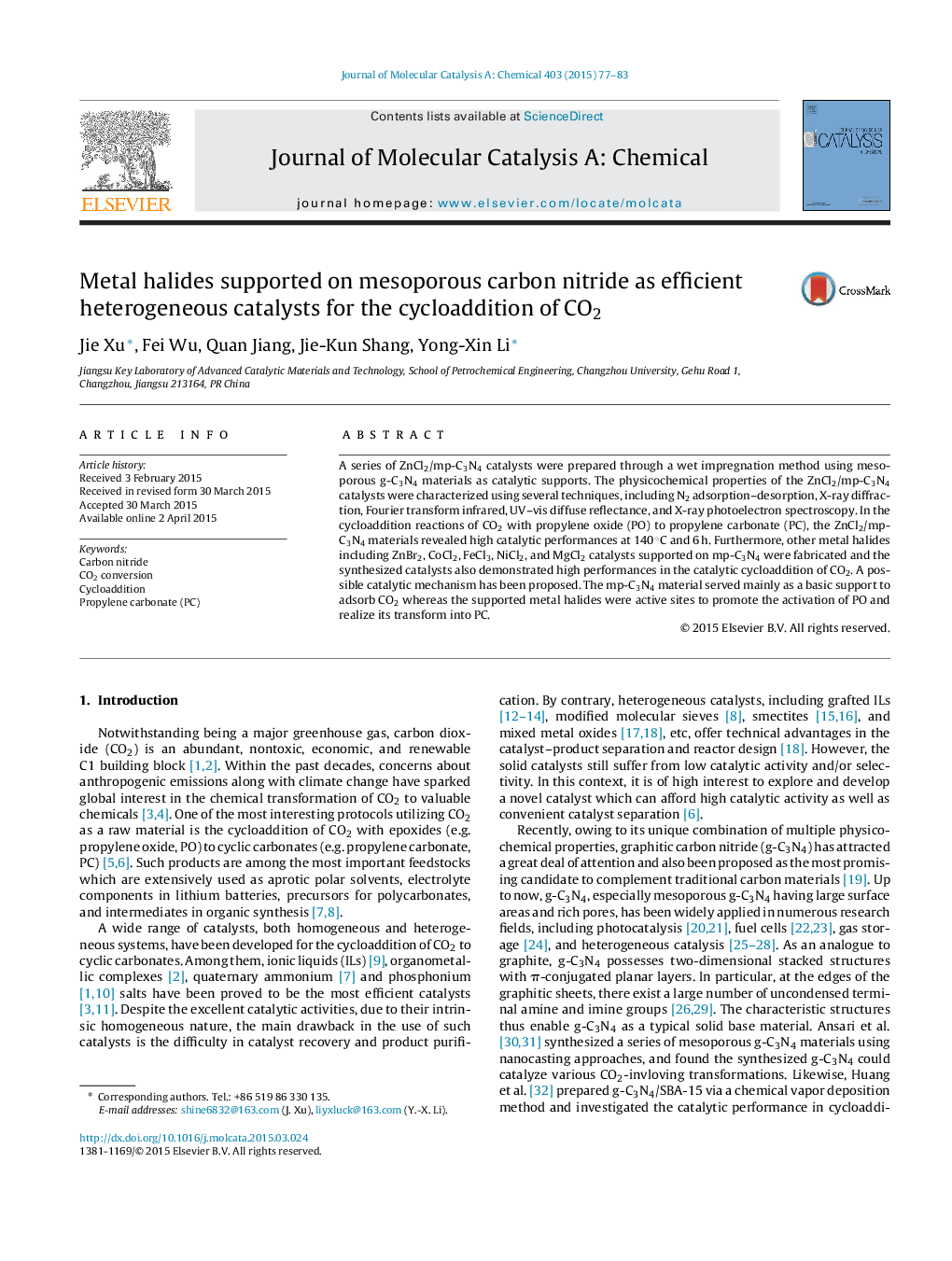| Article ID | Journal | Published Year | Pages | File Type |
|---|---|---|---|---|
| 65034 | Journal of Molecular Catalysis A: Chemical | 2015 | 7 Pages |
•Metal halides were supported on mp-C3N4 supports via simple impregnation methods.•Metal halide was essentially active sites to activate propylene oxide molecule.•Various supported metal halides showed high performances in cycloaddition of CO2.
A series of ZnCl2/mp-C3N4 catalysts were prepared through a wet impregnation method using mesoporous g-C3N4 materials as catalytic supports. The physicochemical properties of the ZnCl2/mp-C3N4 catalysts were characterized using several techniques, including N2 adsorption–desorption, X-ray diffraction, Fourier transform infrared, UV–vis diffuse reflectance, and X-ray photoelectron spectroscopy. In the cycloaddition reactions of CO2 with propylene oxide (PO) to propylene carbonate (PC), the ZnCl2/mp-C3N4 materials revealed high catalytic performances at 140 °C and 6 h. Furthermore, other metal halides including ZnBr2, CoCl2, FeCl3, NiCl2, and MgCl2 catalysts supported on mp-C3N4 were fabricated and the synthesized catalysts also demonstrated high performances in the catalytic cycloaddition of CO2. A possible catalytic mechanism has been proposed. The mp-C3N4 material served mainly as a basic support to adsorb CO2 whereas the supported metal halides were active sites to promote the activation of PO and realize its transform into PC.
Graphical abstractFigure optionsDownload full-size imageDownload high-quality image (130 K)Download as PowerPoint slide
